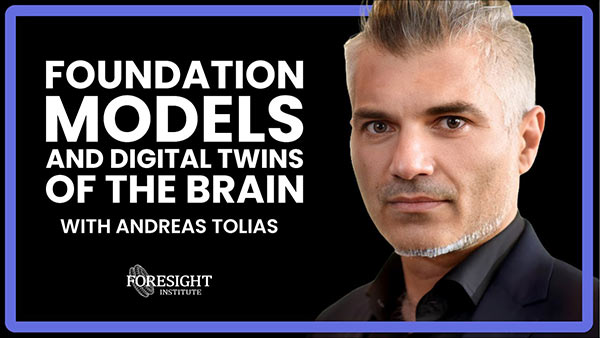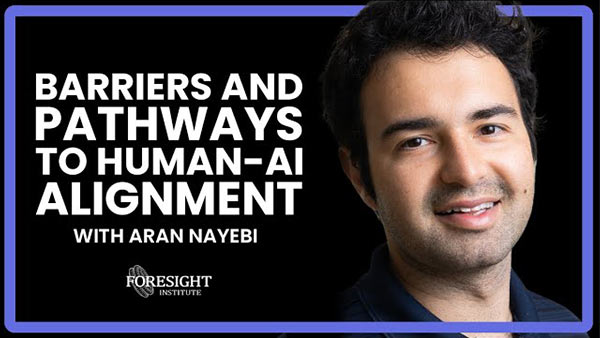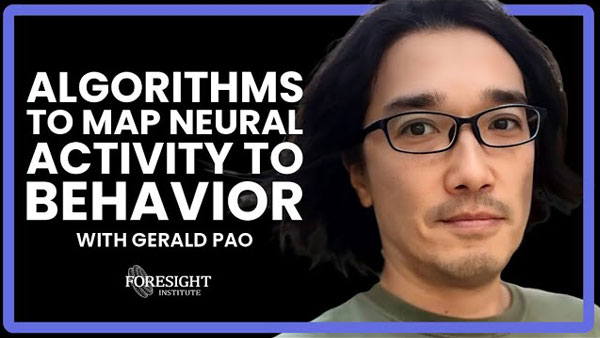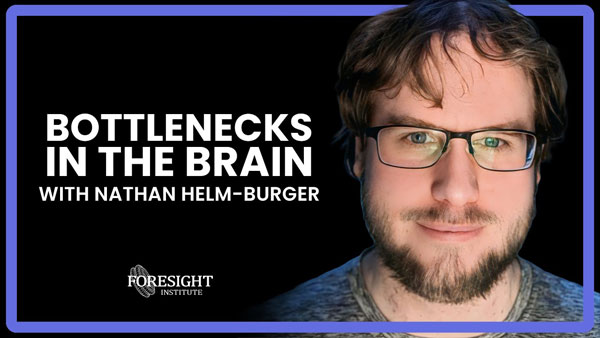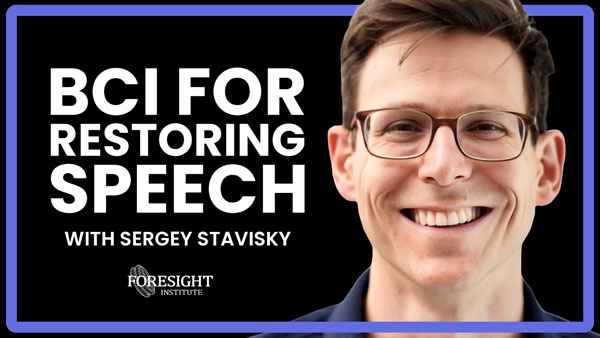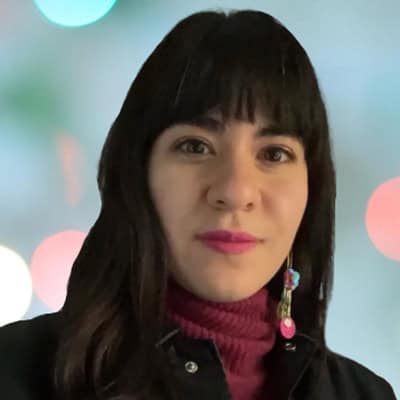Presenter Andreas Tolias Dr. Andreas Tolias is a co-founding director of the Enigma Project and Professor of Ophthalmology at Stanford University, with a courtesy appointment in Electrical Engineering and affiliations with Bio X, the Wu Tsai Neurosciences Institute, and Stanford’s Institute for Human Centered Artificial Intelligence. His work combines large scale neural recordings with machine… Continue reading Andreas Tolias | Foundation models and digital twins of the brain
Presenter Aran Nayebi, CMU Machine Learning Dept Aran Nayebi is an Assistant Professor at Carnegie Mellon University’s Machine Learning Department, a member of the Neuroscience & Robotics Institutes. His lab works at the intersection of neuroscience & AI to reverse-engineer animal intelligence and build the next generation of autonomous agents. Previously, he was a postdoctoral… Continue reading Aran Nayebi | Barriers and Pathways to Human-AI Alignment: A Game-Theoretic Approach
Presenter Gerald Pao Dr. Gerald Pao began his scientific career studying protein evolution at UC San Diego, working with Milton Saier, Joseph Kraut, and others. He then pursued epigenetics and viral vector development at the Salk Institute during his PhD and postdoc with Inder Verma. His work on stem cells and regeneration led him to… Continue reading Gerald Pao | Algorithms to Map Neural Activity to Behavior
Presenter Nathan Helm-Burger Nathan studied neuroscience in graduate school, then spent five years working in industry as a data scientist and machine learning engineer. He has spent the last four years studying AI alignment and safety. His research topics have been: AI capability forecasting, AI Biorisk Evaluation, Corrigibility, and how we can learn from neuroscience… Continue reading Nathan Helm-Burger | Bottlenecks in the Brain
Presenter Sergey Stavisky Sergey Stavisky received his Sc.B. in Neuroscience from Brown University in 2008, after which he worked as a research engineer in the BrainGate group for two years. Sergey completed his PhD in neurosciences at Stanford University in 2016, where he studied motor cortical control of reaching and developed brain-computer interfaces in a… Continue reading Sergey Stavisky | An Intracortical Brain-computer Interface For Restoring Speech
